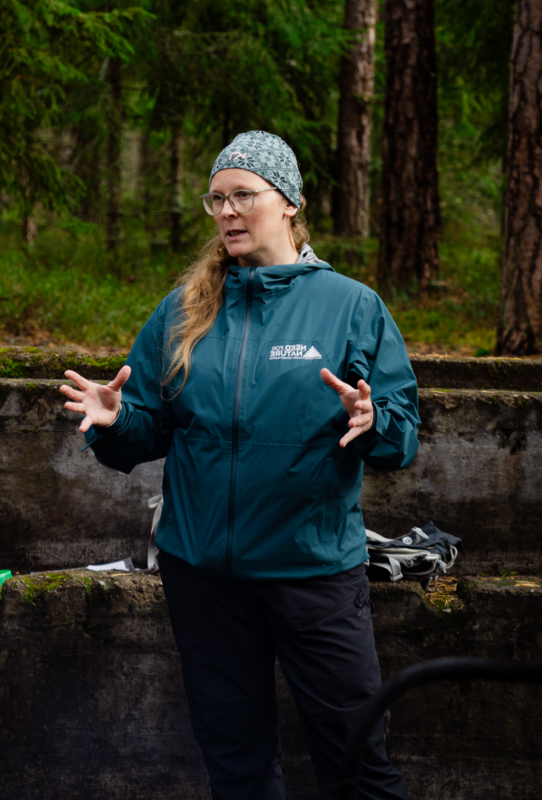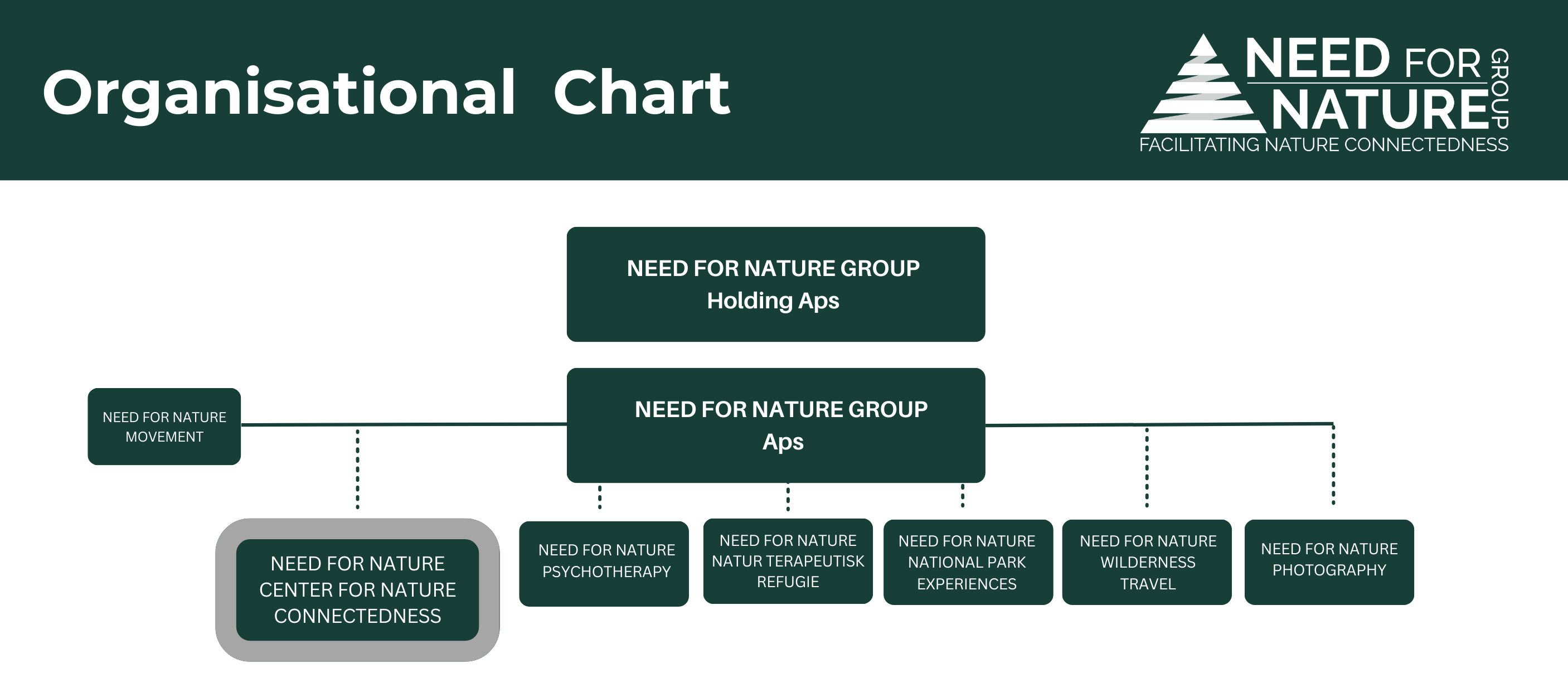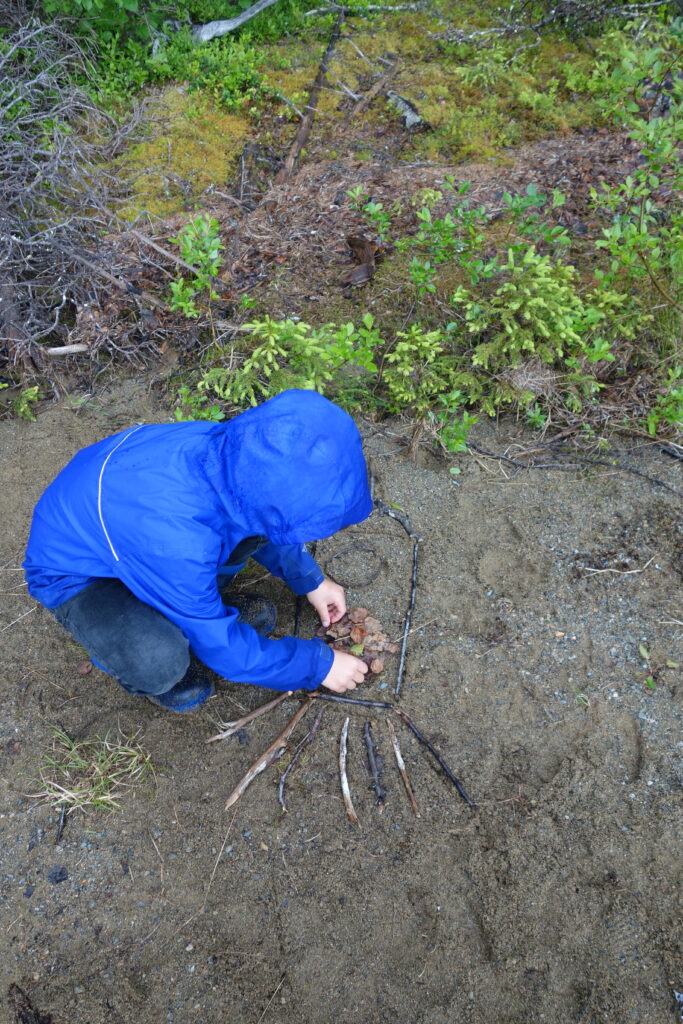ABOUT CENTER FOR NATURE CONNECTEDNESS
ABOUT
In CENTER FOR NATURE CONNECTEDNESS we interpret the almost 50 year old Nature Connectedness research field, and seek to bridge the academic and the practice fields.
CENTER FOR NATURE CONNECTEDNESS conducts research on the human-nature relationship, provides education, programs, keynote speaks, and counseling support on the transition towards the regenerative era we urgently need to enter as humanity.
Further, the center functions as a network hub for peer collaborations, partnership pairing, and common ideation within the interdisciplinary field.


We provide workshops, summits, and conferences aiming to offer a space of like-minded professionals to join forces against growing global societal obstacles to human and planetary health, well-being, and healing opportunities.
We operate in the intersection between human and planetary health, well-being, and healing, aiming to reach both the bottom-up level and the top-down level simultaneously, to impact and support all arenas of global society.
CENTER FOR NATURE CONNECTEDNESS is part of NEED FOR NATURE GROUP founded by Nature Connectedness Researcher & Facilitator Tanya Uhnger Wünsche. Situated in Denmark, yet operating with great fluidity across geographical and disciplinary borders
NATURE CONNECTEDNESS:
The Nature Connectedness research field has experienced massive expansion over the past decade, as a multitude of professionals are beginning to grasp it’s potential in solving the current global crisis of both human and planetary health. From on-ground pedagogical staff to governmental decision-maker levels, the idea of Nature Connectedness as an inevitable solution is dawning.
CENTER FOR NATURE CONNECTEDNESS views Nature Connectedness theories as initially and fundamentally having emerged from two hypotheses: the Biophilia and the Topophilia hypotheses. The Biophilia hypothesis presents the idea that human beings possess a genetically founded and innate tendency to seek connections with nature and other forms of life. The Topophilia Hypothesis proposes that, in addition to the living world, human beings have an emotional connection to specific places.

Nature Connectedness theories founded on ideas that nurture potential Biophilia and Topophilia tendencies have continued to rise and evolve alongside the growing interest in the research field. The human degree of inclusion with nature has been studied as the understanding of how the individual identifies oneself as having a place in nature, how the individual values and prioritizes nature, and how the individual has affection towards nature. Multiple times it is found that perceived inclusion of nature in the human perception of self, involves affectionate caring about nature, feeling connectedness towards nature as a whole, and commitment to protecting nature as an outcome. The human relationship with the more than human nature is described as a psychological connection to nature and proposes the idea that human beings need to feel part of the natural world to address concerns about environmental issues. Nature Connectedness is often seen as a stable individual personality trait made up of cognitive, affective and physical components. The cognitive component covering the degree to which a human being feels part of, and integrated with, his surrounding nature. The affective component covering a human being’s sense of affectionate care for nature. And ultimately, a behavioral component covering the individual ability to commit, advocate and act on behalf of nature. Ideas and notions of Nature Connectedness altogether describe an affective, cognitive, experiential, and embodied physical human relationship with nature by using terms such as affinity, biophilia, commitment, ecological self, identity, inclusion, relatedness, and sensitivity.
The broad and interdisciplinary Nature Connectedness foundation on which the CENTER FOR NATURE CONNECTEDNESS relies may be found under other synonyms. Nature Connectedness research can be found under the synonyms of Connectedness to Nature, Nature Connection, Environmental Connectedness, Nature Relatedness, Place Attachment, Inclusion of Nature in Self etc.
For research literature of Nature Connectedness

